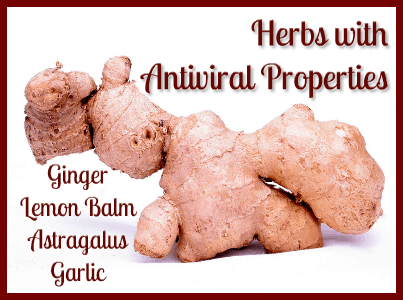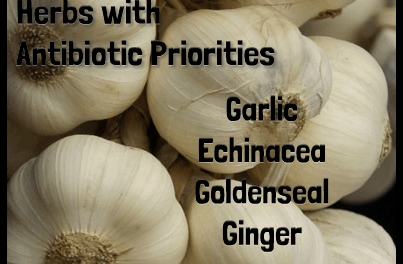The virus is a different creature than the bacteria. One big difference between them is that antibiotics have no effect on viruses. But a great thing that many people don’t know is that certain herbs do have antiviral action, and many of those helpful herbs are widely available. Here are some of them.
1. Lemon Balm
The antiviral ability of Lemon Balm has long been documented, and in many countries, topical creams made from the herb are prescribed for cold sores and other skin lesions. The tea or a cream containing the herb can also be applied to viral lesions such as those from Shingles or Chickenpox.
Lemon Balm also makes a very good tea that can help the immune system combat viral infections such as colds and flu. Lemon Balm is very easy to grow in your garden – a little too easy, in fact, as it tends to take over if not contained.
2. Astragalus
This immune-enhancing herb is known as Huang Qi in Chinese medicine. The flavor of the roots is sweet, not unlike its relative, licorice. Astragalus has been shown to be a very effective antiviral herb, particularly in the prevention of colds and flu, and may even be effective against the Coxsackie B virus (this virus can cause an inflammation of the heart).
You can simmer slices of the root in water to make a healing decoction, or you can use the commercially-available tincture. Astragalus should be taken as a preventative rather than once an illness is in full swing, so if you think you’ve been exposed to a virus such as Influenza, or you experience the very first twinges of a cold, you can start taking Astragalus.
3. Garlic
Garlic is an age-old seasoning in food recipes as well as folk-medicine, and this herb is known to be antiviral, antibacterial, and antifungal. Garlic is common and not expensive, and for cooking or medicinal use you can use the whole herb or take capsules. However, many experts agree that so-called “deodorized” garlic may not be as effective medicinally as the unaltered herb.
You might simmer minced garlic in chicken broth and sip it to stave off colds and flu. Raw, minced garlic can be sprinkled over salads and tossed with pasta, or crushed into a paste and mixed with butter to make a spread for bread slices. The cloves can also be compressed to acquire garlic oil, which is useful system-wide for infections and also topically for tooth infection and/or pain, providing relief for both. Be careful with consuming too much of it raw, though, as for some people it can cause stomach pain or even severe nausea when taken in this form.
4. Ginger
Long ago, ginger was considered a “warming” herb that would prevent nausea from a “chilled stomach,” which was said to occur when large amounts of cold water were consumed in hot weather. We now know that ginger does have powerful anti-nausea action, and it is also anti-viral. People who suffer from “motion-sickness” say that eating candied ginger or drinking ginger tea is a good preventative.
Teas made from fresh ginger are spicy and many find them very tasty. You can sweeten them with raw honey for added germ-fighting benefits and flavor. When you feel the very first stages of a cold or flu, try drinking some of this tea several times a day. You can even drink it as a preventative if you think you may have been exposed to any viruses. Ginger is considered quite safe, although it is not recommended for pregnant women.



Recent Comments